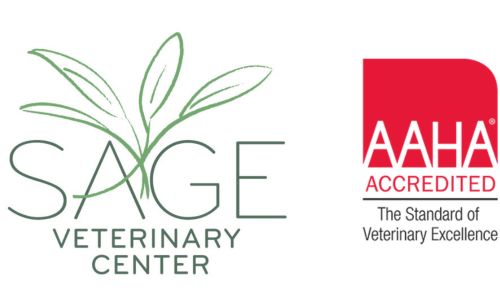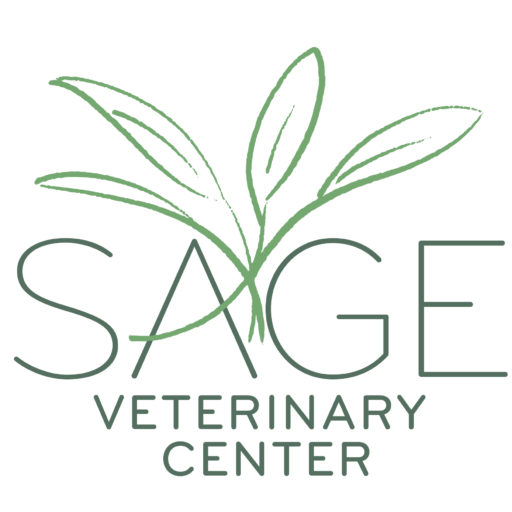Puppy packet
Congratulations on getting a new puppy! This is an exciting time full of lots of new experiences. Whether this is your first pet or you are a seasoned veteran, our team is here to help guide you through each milestone. Your first puppy visit will cover a lot of material and it can be hard to remember all the important details.This guide is meant to keep all this valuable information accessible no matter what time that important question comes up.

Vaccination:
One of the central components of each puppy visit involves vaccinations. Vaccines are essential to keep your pet healthy and safe through their life. They are classified into two different categories:
- Core: all dogs should receive these vaccines regardless of lifestyle
- Non-core: vaccination determined based on lifestyle/ exposure risk
City living requires more vaccinations due to the amount of exposure to other dogs on a routine basis. Walking down the street, going to dog parks and puppy day care all provide excellent socialization opportunities but increase exposure to a variety of different pathogens. At your first visit, we will determine the proper vaccination schedule for your pet based on prior records, age and lifestyle.
- Core Vaccines
- DAPP-. This vaccine is a combination of Distemper Virus (CDV), Adenovirus, Parvovirus, & Parainfluenza. These are some of the most common and contagious viral diseases seen in dogs. Distemper and Parvovirus are serious and often fatal diseases for young puppies. Adenovirus protects against canine hepatitis. Vaccination against Parainfluenza helps protect against one type of infectious cough. Typically, vaccination starts between 6- 8 weeks of age with boosters occuring every 3-4 weeks until 16-20 weeks of age. Pets will receive a booster 1 year after this initial series then every 3 years ongoing.
- Rabies – Rabies is a virus that can infect both dogs and humans. It is a fatal infection with no available treatment. Fortunately, it has become far less common, partly due to excellent vaccination protocols. It is one of the few vaccines that is required by New Jersey law. If an unvaccinated pet is bitten or bites another animal/ person, serious consequences may occur for humans and animals including extensive quarantine and/or euthanasia. All puppies will receive this vaccine after 12 weeks of age. They will receive an additional vaccine after one year, then every 3 years for life.
- Bordetella bronchiseptica: Bordetella bronchiseptica is one of the causes of infectious cough in dogs and is part of the Canine Infectious Respiratory Disease Complex (CIRDC). This bacterial infection affects the respiratory system, and while usually not life-threatening, it can progress into pneumonia and require hospitalization. This vaccine does not provide 100% immunity from the disease. However, it will dramatically lessen the clinical signs and speed recovery time. For puppies, a single oral dose is often given around 8 weeks of age and will be repeated annually. This vaccine is required for most grooming, boarding, or day care facilities in the area.
- Non-Core Vaccines
- Leptospirosis: Leptospirosis is a bacteria spread through the urine of rodents, like rats. Exposure often occurs through contaminated water sources such as puddles, ponds and wet soil. This infection can cause severe, life-threatening damage to the liver and kidneys even with intensive medical treatment. We have seen a significant increase of infection in Brooklyn, Manhattan, and Jersey City. As a result, we strongly recommend vaccinating your puppy against this disease. Puppies will receive a series of two boosters administered 3-4 weeks apart. This vaccine is often combined with the DAPP vaccines as a single injection (called DAPP-L). Yearly booster vaccines are needed to keep immunity at a proper level. We get a lot of questions about this vaccine and have found there is a great deal of misinformation presented to pet parents from various sources. Historically, there was a high rate of severe adverse reactions associated with this vaccine but its formula has been improved and this is no longer the case. It does tend to cause injection site soreness, particularly in small, young puppies. We see similar responses in babies after their first vaccines or even adults after their COVID or flu shot. We will make a plan for handling post injection pain should it occur.
- Lyme: Lyme disease is caused by the bacteria Borrelia burgdorferi and is carried by ticks. City living is not free from tick exposure, especially in grassy areas such as Hamilton Park and Liberty State Park. Ticks tend to be more prevalent in the warmer months. Lyme disease is transmitted to a dog when a tick bites and is attached for more than 24 hours. Oral Preventatives (Nexgard, Bravecto, Simparica) are exceptionally effective at preventing lyme disease as they kill the tick within 4 hours of latching, eliminating transmission. For this reason, most dogs in lower exposure areas, such as Jersey City, are protected as long as they remain on appropriate preventatives. Their lifestyle does not require the vaccine. However, we strongly recommend this vaccine in dogs who routinely go hiking, spend large amounts of time upstate or at the beach, as they are exposed to a higher number of ticks. We are happy to discuss if the lyme vaccine is right for your pet. A series of two boosters administered 3-4 weeks apart is required for full immunity. Yearly booster vaccines are needed to keep immunity at a proper level.
- Canine Influenza: Canine influenza is a relatively new disease, first diagnosed in 2004. Since then, there have been localized pockets of outbreaks with the most recent local occurrence in 2018. It has not been routinely identified in this area since that time. With a reduced caseload in the general population, we typically only pursue this vaccination if your pet frequents day care facilities, boarding or large group facilities. Should an increase in local cases occur, we will alert all clients and discuss a change in vaccination protocol guidance.
Socialization/Training:
When can my puppy start to go outside?
It is important to balance the risk of exposure to infectious diseases with the immense benefits a puppy gains from socialization at a young age. For this reason, we recommend limiting outdoor time until about a week after their second vaccine, typically around 10-12 weeks of age. At that time, they can go out for short walks in low traffic areas and join puppy classes. We recommend waiting until all core vaccines are complete before going to any dog parks which limits interaction with dogs of unknown vaccination status. To reduce exposure to infections from other dogs, avoid allowing your puppy to smell any fecal matter or urine on the sidewalks and wipe their paws when they come in from walks. If you have access to a private outdoor area, your puppy can begin using this space as soon as they come home. You can also promote safe socialization through interaction and playdates with fully vaccinated dogs belonging to friends and family.
Training Tips
We believe that all puppies can benefit from some form of obedience training as they age. We have a blog post available that covers the most common challenges you will be tackling as a new puppy parent. These topics include:
- House Training
- Crate Training
- Local behaviorists and puppy classes
It is helpful to discuss any behavior issues or concerns as soon as they develop. We are able to assist with many different concerns or refer you to a behaviorist for further evaluation if needed. Many dogs will develop fear and anxiety during visits to the clinic. We encourage you to drop in with your dog any time you are in the area for some treats and snuggles, helping to keep SVC a positive environment they look forward to visiting!
Flea, Tick, and Heartworm Prevention:
We recommend all dogs in the Jersey City area be kept on flea, tick, and heartworm preventatives. Available products have become safer, more effective, and easy to administer over the last 10 years. We recommend oral products for several reasons including:
- Ease of administration without greasy topical residue
- Increased efficacy compared to topical products
- Wide safety margin
For Flea/Tick Prevention, we recommend the following products:
- Simparica
- Nexgard
- Bravecto
For Heartworm Prevention, we recommend:
- Heartgard (also covers intestinal parasite prevention)
- SimparicaTrio (also covers flea, tick, and intestinal parasite prevention)
- NexgardCombo (also covers flea, tick, and intestinal parasite prevention)
- Sentinel
Fleas and ticks have historically been rampant in the northeast and we are seeing an increase in heartworm cases as well. For this reason, we recommend year-round, monthly preventative use. Additionally, we will recommend your puppy receive their first Heartworm/Tick-Born Disease testing at 6 months of age, and once annually thereafter.
Intestinal Parasites :
Many puppies have intestinal parasites they acquire from their mother or through other environmental exposure. The best way to diagnose this infection is through the microscopic examination of your dog’s feces for the eggs shed by the adult worms. It is recommended to have a fecal sample submitted at your puppies first visit to allow us to diagnose and treat any parasitic infection. Do not fret if your puppies fecal is positive, we will be able to prescribe the proper deworming medication to eliminate the infection. We recommend routine annual fecal testing to ensure your pet remains free of parasites, especially since adult dogs can remain asymptomatic despite new infection. Common parasites found on routine fecal testing include:
- Giardia
- Coccidia
- Roundworms
- Hookworm
Spaying and Neutering your pet:
Spaying and neutering pets has become an essential part of keeping our animals healthy. Certain types of cancer, severe infections and systemic changes can occur in pets who have not been sterilized.
For many shelter pets, it is common practice to spay and neuter young pets as young as 2 months of age. Sterilization remains an appropriate and routine procedure performed on young pets, especially those coming from a shelter environment. Pets that have been acquired from a breeder or other source may not have been spayed or neutered prior to acquisition. We follow the most up to date, research-based AAHA (American Animal Hospital Association) recommendations to help you determine the best time to pursue surgery for your pet.
- Small-breed dogs (under 45 pounds projected adult body weight) should be neutered at six months of age or spayed prior to the first heat (five to six months).
- Large-breed dogs (over 45 pounds projected adult body weight) should be spayed or neutered after they are done growing, typically between 9 to 15 months of age.
The decision on when to spay a large-breed female dog is based on many factors. Waiting for full maturity can increase bleeding risks and result in a more difficult recovery. Female dogs can reach sexual maturity and go through their first heat cycle as young as 6 months of age. Each heat cycle will increase the risk of mammary cancer development, however these risks may be outweighed by the benefit in dogs over 75 lbs. We will help guide you through this decision process using factors such as your dog’s breed, size, disease risk, and lifestyle.
What are the benefits of spaying or neutering my pet?
We often hear concerns that a female pet needs to experience the joy of motherhood or that their male pet will feel less masculine if he’s neutered. Fortunately, animals do not have such complicated thoughts to consider. Pet owners may elect not to spay or neuter their pets for a variety of reasons, including:
- They show or breed the animals
- Financial constraints
- Fear of anesthesia
- Lack of understanding of the benefits
While all concerns are reasonable when it comes to our pets, the benefit of spay/neuter far outweighs the risks. Consider these benefits when deciding to spay/ neuter your pet:
- Spaying your female pet drastically reduced her risk of mammary cancer. Their risk is 0.5 % if spayed before her first heat, 8% if spayed before her second heat, and 26% if spayed after her second heat. The risk of mammary cancer will continue to increase exponentially with each heat cycle. Mammary cancer is fatal in about 50% of dogs.
- Neutering your male pet eliminates his risk of testicular cancer.
- Spaying and neutering limits pet overpopulation and unwanted pregnancies.
- Spaying your female pet prevents heat cycles and eliminates yowling, crying, erratic behavior, and bloody vaginal discharge.
- Neutering your male pet reduces inappropriate behaviors, such as roaming to find a mate, marking inside your home, and fighting with other males.
- Spaying and neutering is ultimately more cost-effective in the long term. Pyometra, a common uterine infection, requires expensive emergency surgery to save your female pet’s life.
Microchipping:
Even the most diligent pet owner is at risk of losing their dog, often for reasons out of their control. While collars and tags are important means of identification, they can fall off or break. A microchip is a rice-grain sized electronic chip that is injected under the skin of your dog using a hypodermic needle. Microchipping is a permanent means of identification and the best possible way of reuniting you with a lost pet. Lost pets that are brought into a shelter or clinic will be scanned for a chip and this device will help ensure a happy reunion. Microchipping can be done at any visit, but is most commonly done at the time of spay/neuter.
Diet:
Puppies should be kept on a diet that is formulated for their specific needs until they are done with the majority of their growth, typically around one year of age. Smaller breed dogs or those showing signs of excessive weight gain may be transitioned to an adult food at an earlier time. Puppies should be fed 3 times a day until they are around 4 months old. After that time, you can transition to two meals a day. It is important to ensure that puppies do not become overweight, which can predispose them to orthopedic issues. Most commercial dog food brands offer puppy formulas. Some brands we recommend include:
- Royal Canin
- Purina Pro Plan
- Hills
- Wellness
- Natural Balance
- Open Farm
- Instinct
- Fresh foods like Farmers dog or Just Food for Dogs
Every pet is different and we are happy to help you find a meal plan that works for your family. Diet consistency is important in young dogs, so it is best to avoid frequent switching of brands and flavors. Variety in diet can often trigger diarrhea or other gastrointestinal signs in young dogs.
Notes on home cooking, grain free, and raw diets:
- Grain Free Diets– Recent studies have found a correlation between grain free diets and the development of dilated cardiomyopathy, a severe heart condition in dogs. While further research is needed to fully understand this connection, it seems to be linked to the use of legumes (peas, lentils) in these diets. For this reason we advise against feeding grain free diets unless absolutely necessary.
- Home cooked diets– We do not typically recommend home cooked formulas in puppies due to the specificity of their nutrition requirements while growing. Once your dog reaches adulthood, we understand the benefit and flexibility this diet can provide. It is advisable to work with a board certified nutritionist to make sure your pet is eating a balanced diet that will help ensure their long term health.
- Raw diets– Raw diets can benefit some pets, however we strongly recommend against their use in puppies and pets with chronic immune concerns. If you would like to discuss raw diets in your healthy adult dog, please schedule a consultation with our team.
Grooming and Maintenance:
- Coat – Each breed of dog has its own specific grooming requirements. Some dogs will never need their fur cut while others need a trim every few weeks. Certain breeds have a specific grooming standard that can be more labor intensive than styling your own hair! Routine brushing will promote healthy skin and coat regardless of breed.
- Nails – Nail care can vary significantly between dogs. City living can reduce the need for nail trims as concrete surfaces will serve to file nails down during walks. Dewclaws or other nails that do not contact the ground may require more frequent trimming. It is helpful to desensitize your puppy to nail trims by regularly touching their feet and nails. We have an instructional video that can help teach you how to trim your dog’s nails at home.
- Ear Cleaning – Many dogs benefit from routine ear cleaning, especially those prone to ear infections. Just like with paw desensitization, playing with your puppy’s ears can also be beneficial. This instructional video will provide further advice on how to clean your pet’s ears. Always use a veterinary ear cleaner to assist you in this process.
- Teeth – Daily brushing is the most beneficial thing you can do for your dog. The best time to start this routine is during puppyhood. Daily brushing is the best way to maintain proper dental health and reduce the development of periodontal disease that can lead to tooth loss. We understand that daily brushing is a big undertaking but your pets and their pearly whites will thank you for your effort!. This video provides details on how to brush and care for your pet’s teeth.
Toxins:
Please see our blog post on common household toxins to learn more about how to avoid accidental toxicities.


